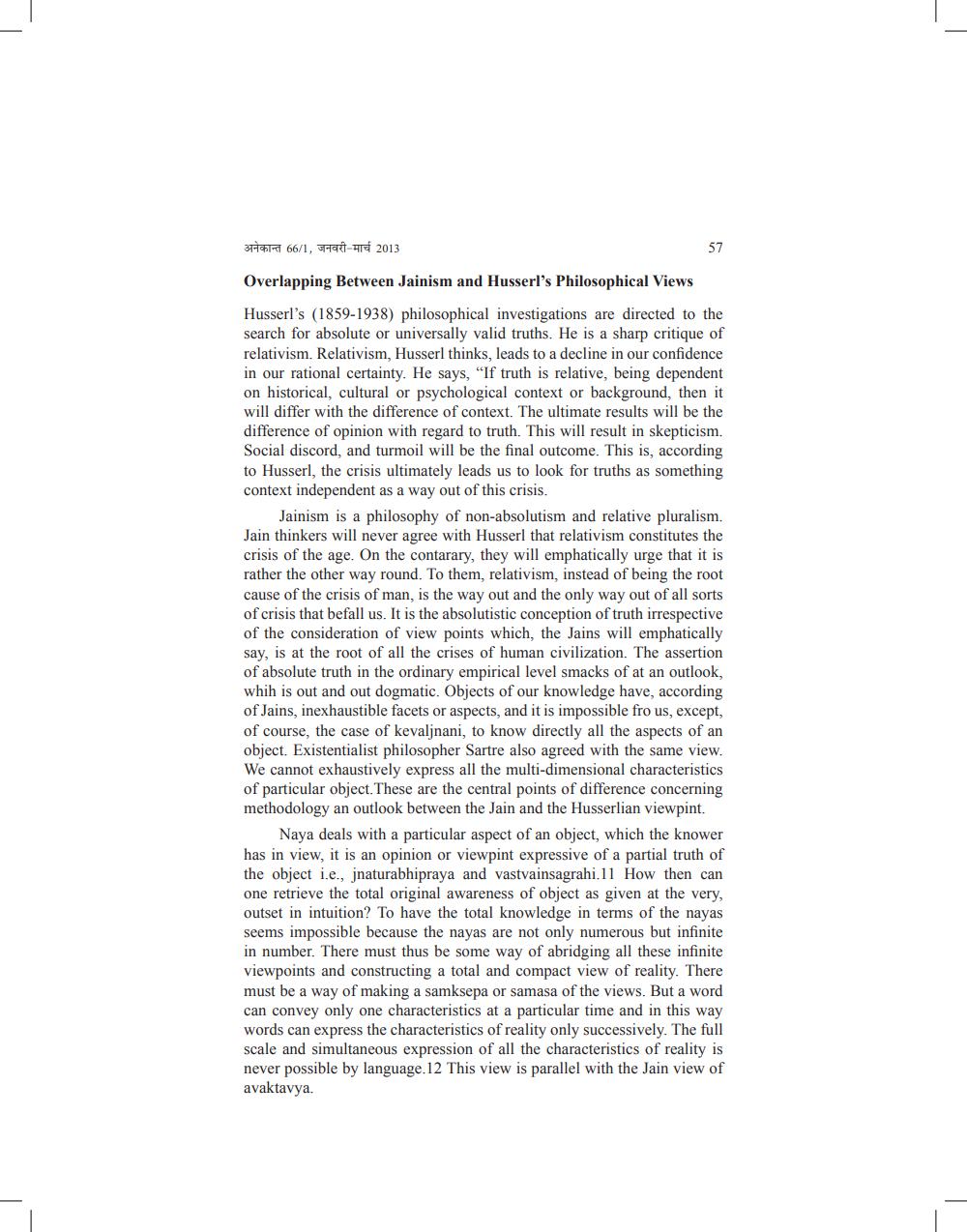________________
316
66/1, 4792-
2013
Overlapping Between Jainism and Husserl's Philosophical Views Husserl's (1859-1938) philosophical investigations are directed to the search for absolute or universally valid truths. He is a sharp critique of relativism. Relativism, Husserl thinks, leads to a decline in our confidence in our rational certainty. He says, “If truth is relative, being dependent on historical, cultural or psychological context or background, then it will differ with the difference of context. The ultimate results will be the difference of opinion with regard to truth. This will result in skepticism. Social discord, and turmoil will be the final outcome. This is, according to Husserl, the crisis ultimately leads us to look for truths as something context independent as a way out of this crisis.
Jainism is a philosophy of non-absolutism and relative pluralism. Jain thinkers will never agree with Husserl that relativism constitutes the crisis of the age. On the contarary, they will emphatically urge that it is rather the other way round. To them, relativism, instead of being the root cause of the crisis of man, is the way out and the only way out of all sorts of crisis that befall us. It is the absolutistic conception of truth irrespective of the consideration of view points which, the Jains will emphatically say, is at the root of all the crises of human civilization. The assertion of absolute truth in the ordinary empirical level smacks of at an outlook, whih is out and out dogmatic. Objects of our knowledge have, according of Jains, inexhaustible facets or aspects, and it is impossible fro us, except, of course, the case of kevaljnani, to know directly all the aspects of an object. Existentialist philosopher Sartre also agreed with the same view. We cannot exhaustively express all the multi-dimensional characteristics of particular object. These are the central points of difference concerning methodology an outlook between the Jain and the Husserlian view pint.
Naya deals with a particular aspect of an object, which the knower has in view, it is an opinion or viewpint expressive of a partial truth of the object i.e., jnaturabhipraya and vastvainsagrahi.11 How then can one retrieve the total original awareness of object as given at the very, outset in intuition? To have the total knowledge in terms of the nayas seems impossible because the nayas are not only numerous but infinite in number. There must thus be some way of abridging all these infinite viewpoints and constructing a total and compact view of reality. There must be a way of making a samksepa or samasa of the views. But a word can convey only one characteristics at a particular time and in this way words can express the characteristics of reality only successively. The full scale and simultaneous expression of all the characteristics of reality is never possible by language.12 This view is parallel with the Jain view of avaktavya.




